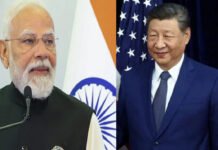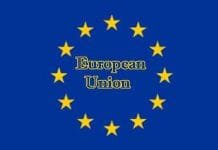Geneva / London, October 14, 2025 —
The World Trade Organization (WTO) has projected that the successful implementation of a new multilateral trade deal could increase global trade volumes by up to 2.3%, offering a rare glimmer of optimism for an international economy still recovering from years of supply chain disruptions and geopolitical conflicts.
In a statement issued during the WTO General Council meeting, officials emphasized that the benefits of the deal would depend heavily on swift and coordinated action among member nations. The United Kingdom, in particular, has urged trading partners to accelerate the process to revive confidence in global commerce.
“Trade is the lifeblood of global prosperity. Implementing this agreement quickly could help stabilize supply chains and strengthen trust between nations,” said UK Trade Secretary Amelia Carter, addressing delegates in Geneva.
A Boost Amid Uncertainty
According to the WTO’s forecast, the new deal — centered on digital trade facilitation, sustainable exports, and fair market access — could unlock nearly $450 billion in additional global trade value over the next decade.
The agreement aims to streamline customs processes, reduce trade barriers, and improve transparency in cross-border transactions, particularly for developing economies that rely heavily on exports.
“This is the first time in nearly a decade that a comprehensive global trade reform has gained such wide consensus,” said WTO Director-General Ngozi Okonjo-Iweala. “It’s a sign that multilateralism is not dead — it’s evolving.”
The WTO chief also warned, however, that “gains on paper will mean little unless nations follow through with real implementation.”
UK’s Push for Reform
The UK delegation played a prominent role at the General Council, calling for modernization of trade frameworks to reflect the realities of 21st-century commerce — including digital goods, AI-driven supply chains, and green technologies.
“Our economies are changing faster than our rules,” Secretary Carter noted. “We must ensure that trade agreements empower innovation while protecting sustainability.”
London’s statement highlighted the UK’s broader strategy of positioning itself as a “bridge between developed and emerging markets” post-Brexit, by leveraging new partnerships across the Indo-Pacific and Africa.
The Numbers Behind the Optimism
The WTO estimates that:
Global goods trade could grow by 2.3% annually once reforms are implemented.
Developing nations could see exports rise by up to 5%, particularly in agriculture and manufacturing sectors.
Digital trade costs could fall by nearly 20%, opening new opportunities for small businesses.
Economists say these projections could provide a much-needed lift to global sentiment amid widespread slowdown concerns.
“The world economy needs a confidence injection,” said Dr. Paul Kruger, senior economist at the London School of Economics. “If the WTO deal gains momentum, it could be the catalyst for a more balanced recovery.”
Challenges Ahead
Despite optimism, experts caution that geopolitical frictions — including U.S.–China trade tensions, Middle East instability, and EU regulatory hurdles — could slow down implementation.
Several nations have also expressed reservations about data governance, digital sovereignty, and environmental compliance standards included in the agreement.
“Trade is no longer just about tariffs; it’s about technology and trust,” explained Dr. Kruger. “The challenge is making sure all nations feel secure in a shared digital future.”
Global Reaction
Reactions across global capitals have been mixed but largely positive.
The European Union welcomed the framework as a “step toward predictable trade rules,” while the United States urged a “pragmatic approach” to enforcement.
Emerging economies such as India, Brazil, and Vietnam emphasized the need for fairer representation in WTO decision-making.
“We must ensure that developing countries are not left behind in the digital trade revolution,” said India’s Commerce Minister Piyush Goyal. “Equity and access must go hand in hand.”
What It Means for Businesses
Analysts believe multinational corporations and SMEs could benefit significantly from simplified logistics and harmonized regulations.
Sectors like e-commerce, manufacturing, renewable energy, and agritech stand to gain the most.
The UK government has already announced plans to host a Global Trade Innovation Forum in early 2026 to explore how businesses can adapt to the new framework.
Conclusion
The WTO’s trade deal offers a rare note of optimism for a fragmented world economy. With the promise of a 2.3% boost in global trade, nations are being urged to turn diplomatic words into action.
As WTO Director-General Okonjo-Iweala summed up:
“The world cannot afford another decade of division. Trade is not just an economic necessity — it is a bridge to peace.”
















